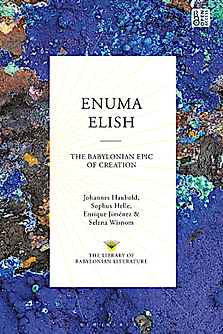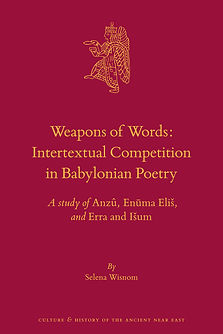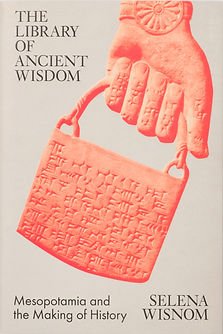
Dr Selena Wisnom
About

My research centres on the heritage of ancient Iraq, specifically the languages, literature, and intellectual history of Mesopotamia. Particular areas of interest include Babylonian poetics and metre, Mesopotamian scholarly texts, divination, and neo-Assyrian history. I also work with a number of arts, heritage, and community organisations to promote wider engagement with Iraq’s ancient history and culture, especially through theatre and performance.
I initially studied Classics before taking up graduate work in Cuneiform Studies. My MPhil and DPhil focused on Babylonian poetry, and alongside my research I wrote a trilogy of plays set in ancient Assyria. Subsequently I held an AHRC Cultural Engagement Fellowship, working to build links between theatres and academic research. In Oct 2016 I was elected to a Junior Research Fellowship in Manuscripts and Text Cultures at The Queen's College, Oxford, and I was a fixed-term lecturer in Assyriology at the University of Cambridge from 2017-2019. I joined the University of Leicester in 2020 as the first Lecturer in the Heritage of the Middle East.
Library of Ancient Wisdom: Mesopotamia and the Making of History
When a team of Victorian archaeologists dug into a grassy hill in Iraq, they chanced upon one of the oldest and greatest stores of knowledge ever seen: the library of the Assyrian king Ashurbanipal, seventh century BCE ruler of a huge swathe of the ancient Middle East known as Mesopotamia. After his death, vengeful rivals burned Ashurbanipal’s library to the ground - yet the texts, carved on clay tablets, were baked and preserved by the heat. Buried for millennia, the tablets were written in cuneiform: the first written language in the world.

Enuma Elish: the Babylonian Epic of Creation
This open access book is the first in a groundbreaking series making Babylonian literature accessible. It presents Enuma Elish in transcription and translation, with an introduction for non-specialist readers and essays from leading scholars in the field.

Weapons of Words: Intertextual Competition in Babylonian Poetry
In Weapons of Words: Intertextual Competition in Babylonian Poetry Selena Wisnom offers an in-depth literary study of three poems central to Babylonian culture: Anzû, Enūma eliš, and Erra and Išum. Fundamentally interconnected, each poem strives to out-do its predecessors and competes to establish its protagonist, its ideals, and its poetics as superior to those that came before them.
The Babylonians predicted the future using sheep livers - and so do I.
Click on the clay liver model below to find out more.

Upcoming Events
- Mesopotamia and the Making of History04 Feb 2026, 19:00 – 20:00Online
